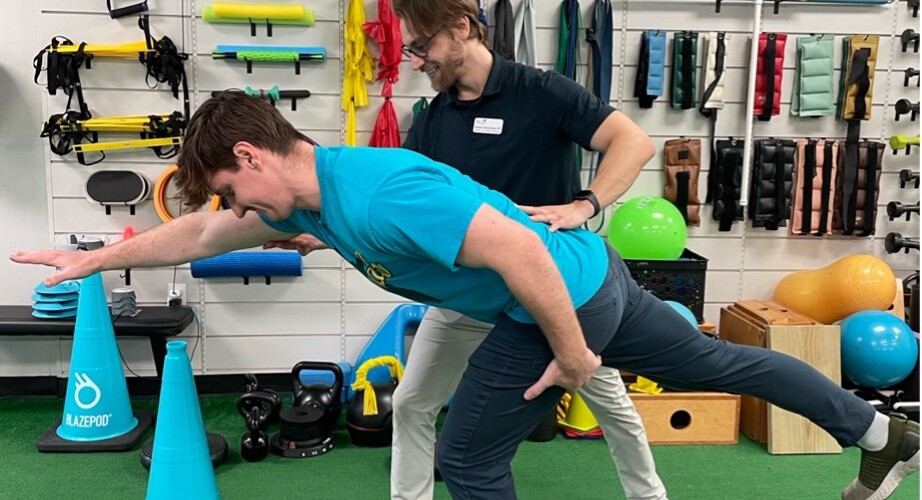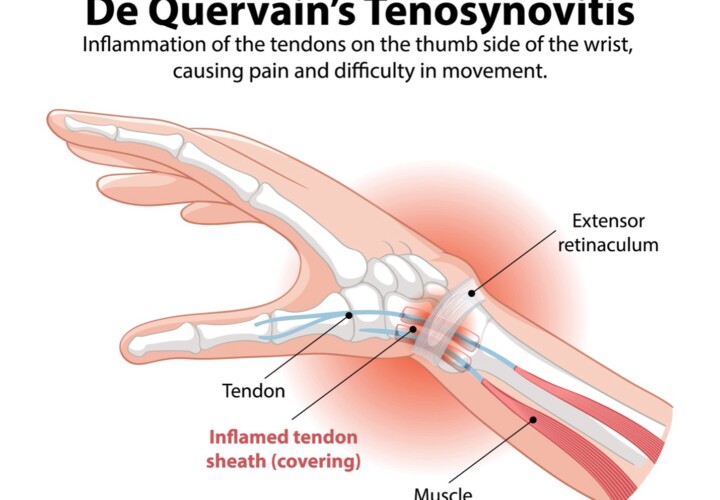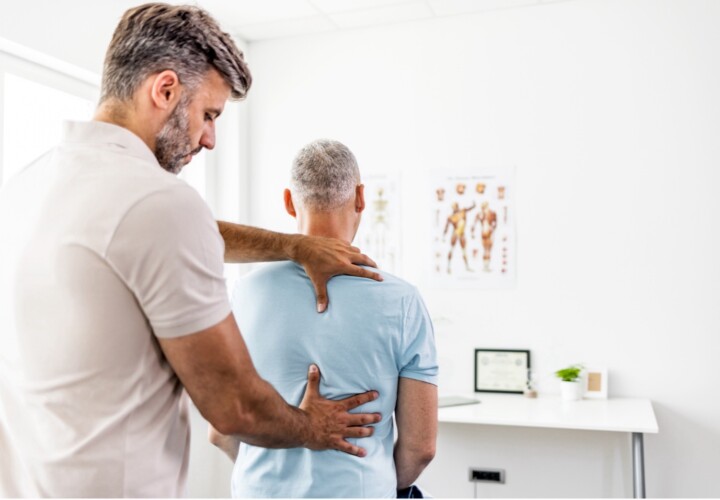Runner’s Knee and Physical Therapy
Runner’s Knee, also known as Patellofemoral Pain Syndrome (PFPS), is a common overuse injury affecting runners and athletes across various sports. PFPS manifests as pain around the kneecap, discomfort when standing after prolonged sitting, pain with repetitive bending and straightening of the knee, and a catching, grinding, or clicking sensation at the kneecap. This condition can significantly impact an athlete’s ability to train, perform, or even complete daily activities comfortably.
Common Causes of Runner’s Knee
Several factors contribute to the development of Runner’s Knee, including:
- Overuse and Increased Activity: Sudden increases in training volume or intensity without proper endurance training can overload the knee joint, leading to irritation of the patellofemoral region.
- Poor Running or Exercise Mechanics: Faulty biomechanics, including improper running form, incorrect landing techniques, and excessive inward knee movement, can contribute to excessive stress on the knee cap.
- Muscle Imbalances and Weakness: Weakness or imbalance in the quadriceps, hamstrings, glutes, or calf muscles can lead to improper tracking of the patella and increased strain on the knee joint.
- Improper Footwear: Worn-out or unsupportive shoes can alter foot mechanics, leading to increased stress on the knees.
- Tight Muscles and Limited Flexibility: Tightness in the quadriceps, hamstrings, calves, or iliotibial (IT) band can affect knee alignment and function, making it more prone to PFPS.
- Structural Factors: Individual anatomical variations, such as high or low arches, flat feet, or kneecap misalignment, can predispose some individuals to Runner’s Knee.
Treatment Options for Runner’s Knee
The management of Runner’s Knee focuses on reducing pain, restoring function, and preventing recurrence. Some of the most effective treatment approaches include:
- Rest and Activity Modification
Reducing activities that aggravate knee pain, such as running or high-impact sports, allows the irritated tissues to heal. Low-impact activities like swimming or cycling can be alternative options during recovery.
- Ice and Pain Management
Applying ice to the affected area for 15-20 minutes several times a day can help reduce pain and inflammation. Over-the-counter pain relievers, such as NSAIDs, may also be recommended by healthcare providers.
- Physical Therapy
A structured physical therapy program is crucial for effective treatment and long-term relief from PFPS. Your Physical Therapist will conduct a thorough examination to assess muscle tone and strength, knee and patella mobility, running and sport mechanics, and overall functional movement patterns. Treatment will be tailored based on your specific needs and functional goals.
How Hohman Rehab Can Help
At Hohman Rehab, we specialize in personalized rehabilitation programs designed to effectively treat Runner’s Knee and prevent future flare-ups. Our experienced Physical Therapists utilize a combination of evidence-based interventions to help you recover and return to your activities pain-free. Here’s how we can assist you:
- Comprehensive Assessment
Our therapists will perform a detailed assessment to determine the root cause of your knee pain, identifying muscle imbalances, movement dysfunctions, and biomechanical issues contributing to PFPS.
- Individualized Strengthening Programs
We design targeted strength training programs focusing on:
- Quadriceps Strengthening: Exercises such as straight leg raises, mini squats, and leg presses to support the patella.
- Glute and Hip Strengthening: Strengthening the hip abductors and external rotators (gluteus medius, maximus) helps offload stress from the knee joint.
- Core Stability Training: Improving core strength enhances overall lower-body alignment and movement efficiency.
- Flexibility and Mobility Work
Our team incorporates stretching and mobility techniques to address tightness in the quadriceps, hamstrings, and IT band. Foam rolling, dynamic stretching, and manual therapy techniques help improve tissue flexibility and reduce tension on the knee joint.
- Gait and Running Analysis
For runners, our specialists perform gait analysis to assess stride length, foot strike pattern, and running mechanics. We provide corrective strategies, including form adjustments and footwear recommendations, to optimize running efficiency and minimize knee stress.
- Pain Management Techniques
We use modalities such as manual therapy, taping techniques, and neuromuscular re-education to reduce pain and inflammation while improving joint mobility and stability.
- Progressive Return to Activity
Our goal is not just to eliminate pain but to ensure a safe and effective return to running or sports. We implement progressive loading strategies and sport-specific drills to help athletes regain confidence and performance levels.
Preventing Runner’s Knee Recurrence
To prevent future episodes of PFPS, we emphasize:
- Gradual Training Progression: Avoid sudden spikes in running mileage or intensity to allow the body to adapt.
- Proper Warm-Up and Cool-Down: Incorporating dynamic warm-ups and post-exercise stretching improves muscle activation and flexibility.
- Strength and Stability Maintenance: Regular strength training and balance exercises ensure long-term knee health and resilience.
- Wearing the Right Footwear: Choosing supportive, well-fitted running shoes based on your foot type and gait mechanics reduces stress on the knee.
Get Back to Running Pain-Free with Hohman Rehab
Runner’s Knee doesn’t have to sideline you from your training or daily activities. With the right physical therapy approach, you can recover effectively and prevent future injuries. At Hohman Rehab, our team is dedicated to helping athletes and active individuals achieve optimal knee function and return to their sport safely. If you’re experiencing knee pain, contact us today to schedule an evaluation and start your journey to recovery!
Our Locations:
- Clermont Office: 236 Mohawk Road, Clermont, FL 34715
- Ocoee Office: 11095 W. Colonial Drive, Ocoee, FL 34761
- Apopka Office: 125 S. Park Ave., Apopka, FL 32703
Phone: 855-404-6908 | Fax: 352-404-6909




